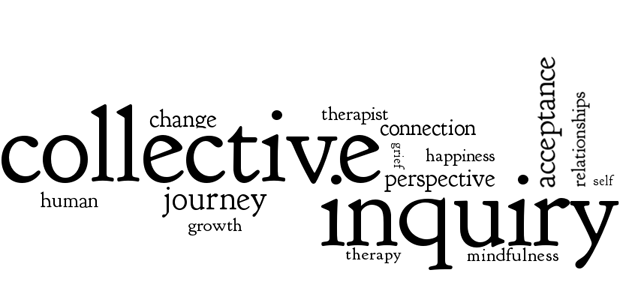

Several posts on CollectiveInquiry have focused on the importance of connection. It seems redundant to repeat the importance of it here. Though, I imagine all of us can accept that interpersonal connection plays a role in all of our lives – both when it’s there and when it’s not.
In this post, I’m going to focus on what happens when you make a bid for connection, and that bid fails. For example, what happens when you let down your guard to let another person in, or when you strip yourself of pride to ask someone to be there for you, and it isn’t answered? A bid can be as small as starting a conversation in order to connect with a friend. It can be as intentional as letting a partner know that you feel distant and want to feel more connected. But what happens when your bid is not answered?
One way that we respond is by withdrawing. We decide to put our guard back up. We may tell ourselves that we were wrong to let our guard down in the first place. We only connect to the few people we know will be there, or in the extreme, stop seeking a connection altogether.
On the other side, a failed bid causes some of us to panic. We become desperate for connection regardless of the cost. We may try to control others into being there for us. We may do anything to please another for the hope of a connection. We may even seek a connection with a different person to make up for it.
During a defining period in my own life, I saw myself flip from one extreme to the other rapidly – desperately wanting that connection and acting out in ways I didn’t understand in order to get it while also giving up and withdrawing in spontaneous bouts of hopelessness.
While it may not feel that way, all of these actions are normal. We respond to hurt feelings in the only way we know how. And while I hesitate to label some behaviors as healthy and others as unhealthy, I know withdrawing or panicking makes me feel worse for longer than when I use a more mindful approach.
There are several ways to cope with a failed bid for connection. First, it is important to recognize that you are not bad because the other person didn’t answer your bid. When I try to connect and the person doesn’t respond, I immediately feel foolish for wanting a connection – as though I should be able to give myself whatever I’m looking for (e.g., comfort, security, confidence, love, etc.). But this foolish feeling is not fact.You deserve to feel connected, and you are not weak for wanting it.
Also, remember that the other person is not bad even though they did not answer your bid. After I remind myself that I’m not foolish, I then jump to wondering why the other person isn’t willing to be there for me. Questions stream through my head: Why won’t she make time for me? Why doesn’t he want to be close to me? and so on. But this, also, is untrue. This person may not have recognized your bid, may not know how to respond, or may not have learned to feel comfortable with connection.
With these first two components in mind, it can be helpful to find a way to comfort yourself. Some people listen to comforting music. Others call a close friend or family member who can offer that connection. Finding a way to soothe your hurt feelings is through trial and error. Overall, it is important to be mindful of what is not helpful so that you can figure out what is.
Each day, we make many bids for connection. And many of those bids go unanswered. It’s important to find a way to comfort yourself when it happens. There is no need to withdraw. You deserve to feel connected. There is no need to panic. Sometimes, the person we need isn’t able to be there.
And both of those things are okay.
Share your thoughts
No Thoughts About When Connection Fails